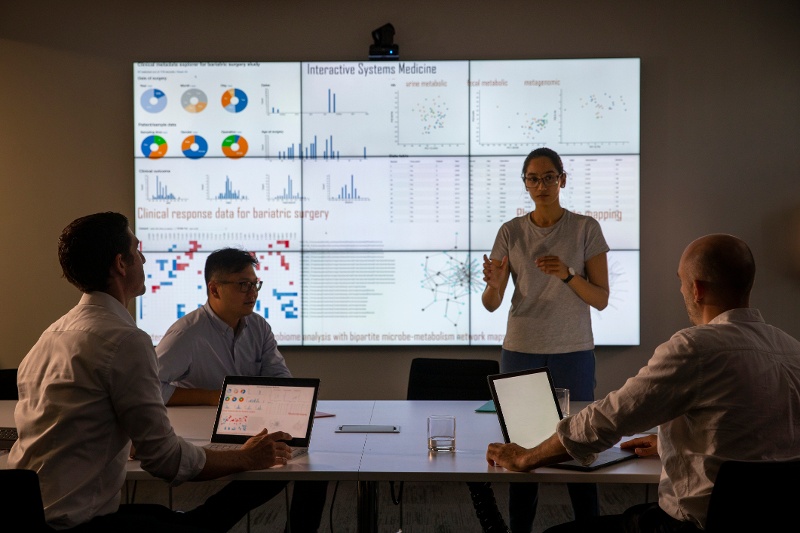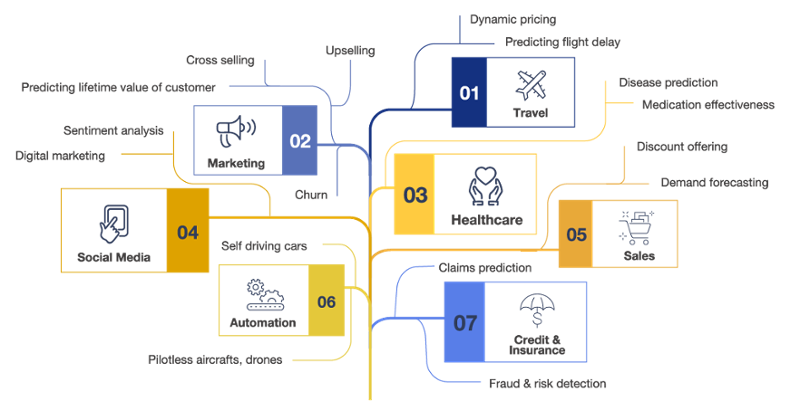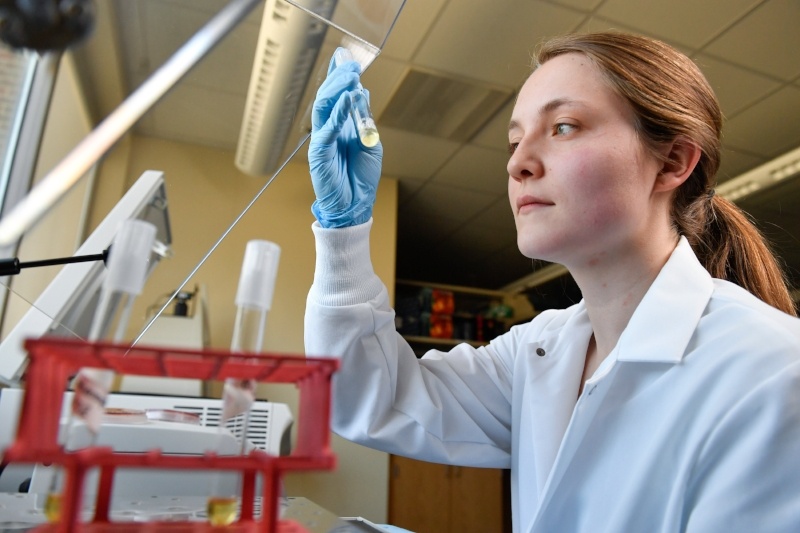Today’s advanced, tech-savvy world makes it possible for countless organizations to compile valuable data that can inform future business decisions and drive positive change.
As technology continues to advance, an increasing number of industries reap the benefits of data science.
From infrastructure to health care, from marketing to sustainability, data allows these industries to perpetuate progress in a variety of ways.
“The ability to take data — to be able to understand it, to process it, to extract value from it, to visualize it, to communicate it — that’s going to be a hugely important skill in the next decades.”
— Hal Varian, Chief Economist, Google
What is Data Science?
First things first: what is data science?
Unlike traditional analysis, which includes processing historical data, data scientists explore data from many angles and utilize “various advanced machine learning algorithms to identify the occurrence of a particular event in the future.”
Data science “is a blend of various tools, algorithms, and machine learning principles with the goal to discover hidden patterns from the raw data.”
Because so much of today’s data is unstructured — data not organized in a predefined manner — the need for more advanced and complex analytical tools and algorithms continues to increase.
Now, let's explore three industries that benefit from data science.
Marketing
Marketers today work in a world filled with emerging technologies, increasingly-intelligent analytic tools, and an unprecedented amount of user information. But the rate of innovation has resulted in a marketing industry filled with experimenters — not experts.
In order to bridge the gaps between different departments, silos, and specialists, a solid understanding of data is critical. Whether you’re a marketing specialist, a senior-level strategist, or young professional aspiring to break into the industry, you must be able to make data-driven decisions at every stage of the marketing production process.
Public Health
Between the national opioid crisis and the COVID-19 pandemic, it’s clear that our public health system is vulnerable. The field needs skilled strategists and analysts who can conduct research, gather data, identify patterns, and facilitate data acquisition, modeling, and prediction.
By engaging with data and research, data-minded public health professionals make it possible to identify and provide solutions for our communities’ public health needs.
Robotics Engineering
Robotics is a sophisticated branch of technology that blends disciplines like computer science, engineering, and cyber-physical systems to create, evaluate, and utilize intelligent machines that are capable of working in tandem with or in place of humans.
An increasing number of industries reap the benefits of robotics technology. Robotics engineers work with data scientists to perpetuate progress in a variety of important professional landscapes including exploration, automation, and agriculture.
Best STEM Graduate Programs for Data-Minded Professionals:
Fueled by the academic innovation coming out of West Virginia University’s own graduate school community, the data-focused graduate programs at WVU serve as a hub for research, knowledge-sharing, and data-driven innovation — all with the goal of advancing technology as well as the meaningful industries that perpetuate progress.
Here are a few colleges and departments at WVU that offer data-focused graduate programs:
- MS Business Data Analytics (Online)
- GC Business Data Analytics (Online)
- GC Business Data Technology Management (Online)
- GC Business Cybersecurity Data Analytics (Online)
- GC Business Cybersecurity Management (Online)
- GC Business Cybersecurity Foundations (Online)
- MS in Biostatistics (On-campus)
- MPH in Biostatistics (On-campus)
- GC in Health Data Science (Online)
- GC in Applied Biostatistics (Online)
- PhD in Computer Engineering (on-campus)
- GC in Computer Forensics (on-campus)
- PhD in Computer Science (on-campus)
- MSCS in Computer Science (on-campus)
If you are interested in boosting your career with a data science-related graduate degree, then we invite you to get in touch with us!







-489630-edited.jpg)






